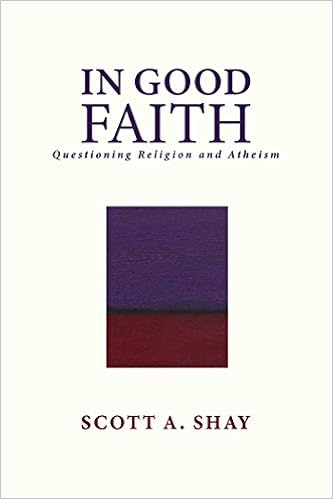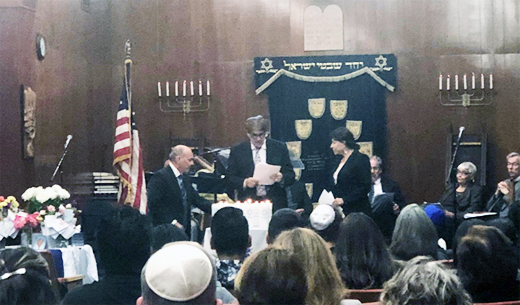The Pole who purposely got sent to Auschwitz
The Volunteer: One Man, an Underground Army, and the Secret Mission to Destroy Auschwitz by Jack Fairweather, Custom House, 2019, ISBN 00625-61413; 528 pages, $21.95.
By Rabbi Dr. Michael Leo Samuel
CHULA VISTA, California — When San Diego Jewish World editor Don Harrison asked me to review Jack Fairweather’s book, The Volunteer, about a Polish resistance fighter during the Holocaust, I decided I would read it. After all, not all the Poles hated the Jews, and one young Polish man took a bullet to save my father’s life.
We often think the Jews during the Holocaust were too timid and afraid to fight back. This however is a myth. The most dramatic story of resistance occurred with the Warsaw Ghetto uprising. Additionally, in some concentration camps, Jewish prisoners did attempt to rebel. The uprising at Sobibor inspired a 1987 film which aired on ITV and CBS. Other efforts to resist also took place at Auschwitz-Birkenau and Treblinka.
Now, biographer Jack Fairweathernarrates a remarkable story about a Polish resistance fighter’s infiltration of Auschwitz to sabotage the camp from within, and his daring escape to warn the Allies about the Nazis’ true plans for a “Final Solution.”
The book highlights the power of a single individual who tried to make a difference.
In an attempt to uncover the fate of the thousands being interred at a mysterious Nazi camp on the border of the Reich, a young Polish resistance fighter named Witold Pilecki volunteered for an audacious mission: intentionally get captured and transported to the new camp to report back on what was going on there. But gathering information was not his only task: he was to execute an attack from inside—where the Germans would least expect it.
The place of his assignment: Auschwitz.
Over the next two and half years, Pilecki assembled an underground army within Auschwitz that sabotaged facilities, assassinated Nazi informants and officers, and smuggled out evidence revealing the terrifying abuse and mass murder of the Jews. But as the annihilation of innocents accelerated, Pilecki realized he would have to attempt another perilous mission: escape Auschwitz and somehow—with more than 900 miles of Nazi-occupied territory in the way—deliver his alert to London before all was lost. Pilecki hoped that his reports, once sneaked out of the camp, would rouse the Allies to bomb Auschwitz.
This never happened.
My father used to tell me that they could see the American planes flying over Auschwitz, but no command was ever given to blow up the tracks leading to the concentration camp—even though it most certainly would have shortened the war, because the same trains used to transport the Jews were also used to transport military equipment for the Nazi armies. There was a sardonic joke that everyone in Auschwitz knew. When transporting military equipment in the trains, there was a sign on the top of the trains that read, “This train contains Jews!”
One would have expected Pilecki would have been declared a national hero. But this was the age of Stalin, who used the opportunity to expand his own sphere of Communist influence in Eastern Europe; and so he created the Iron Curtain—whose 64th anniversary of liberation we are celebrating this week.
Tyrannies fear heroes who fight for human dignity and freedom. The Communists feared Witold Pilecki because he was a Polish nationalist who fought for the Polish resistance movement.
After the war, the Polish Communist government hid the entire record of what Pilecki tried to do. Perhaps fearing what Pilecki’s following might try to do against the ruthless leaders of the Polish Communist government, the authorities arrested over 80,000 members of Pilecki’s underground. “The regime determined “Witold’s family to be enemies of the state, and [Witold’s wife] Maria retreated into obscurity as a cleaner in a church orphanage,” Fairweather wrote. “The regime sealed Witold’s papers in the state archives, and Prime Minister Józef Cyrankiewicz fashioned an official history of Auschwitz that presented its Communist inmates like himself as heroes in a global struggle against fascism and imperialism. The Holocaust was barely mentioned in this telling, and he characterized Witold’s group as ‘proto-fascist.'”
After the collapse of the Soviet Union and their vassal states, Witold’s son Andrzej managed to get the records of his father’s report from 1943-1944. The papers included a memoir of his early life, additional notes, interrogation files, and the crucial key to his coded references. It was the first time that the family had had a chance to read about Witold’s mission in his own words.
The citizens of Poland have the world’s highest count of individuals who have been recognized by Yad Vashem, the World Holocaust Remembrance Center in Jerusalem, as the Righteous Among the Nations, for saving Jews from extermination during the Holocaust in World War II.[1]
Fairweather deserves a tremendous amount of credit for writing this book. The author spent five years reviewing over 2000 primary sources in Polish and German. Some of these sources became available only in the 1970’s and others were released with the fall of Communism in Poland and the dissolution of the Soviet Union in 1989. The sources revealed that the Allies were well aware of the atrocities of Auschwitz, but did not consider the camp strategic for the purpose of defeating the Germans.
Menachem Begin is purported to have once said, “The Holocaust occurred so that Hitler would not conquer the world, for instead of defeating his enemies in battle, he wasted his resources and time murdering the Jews instead.”
Witold’s legacy needs to be celebrated in Poland—even now as we witness the rise of Polish anti-Semitism occurring today.
*
Rabbi Dr. Michael Samuel is spiritual leader of Temple Beth Shalom in Chula Vista. He may be contacted via michael.samuel@sdjewishworld.com








